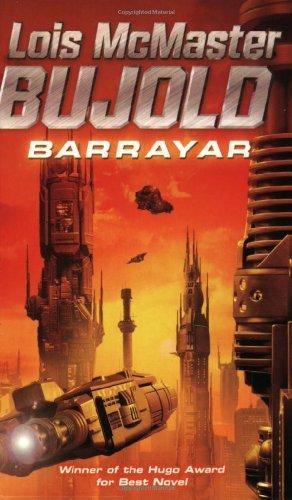enne📚 reviewed Barrayar by Lois McMaster Bujold
Barrayar
4 stars
Most of the books in this series are quite standalone, but Barrayar feels more like the second half of Shards of Honor. This book follows Cordelia's attempt to survive and protect her new child in a hostile environment as Aral struggles with his new job as regent.
This book and its prequel are some of the strongest books in the series for me. I love Cordelia as an outsider character who hates what she sees in Barrayar but ties herself to it for the people she loves all the same. It's also nice to have "older" characters (which then feels a bit of a shock when the next book has seventeen year old hyperactive Miles). This is also a book that very much centers itself on children and families, and all of the side plots (Drou & Kou, the Vorpatrils, friendship with Kareen, Bothari & Elena) tie neatly into …
Most of the books in this series are quite standalone, but Barrayar feels more like the second half of Shards of Honor. This book follows Cordelia's attempt to survive and protect her new child in a hostile environment as Aral struggles with his new job as regent.
This book and its prequel are some of the strongest books in the series for me. I love Cordelia as an outsider character who hates what she sees in Barrayar but ties herself to it for the people she loves all the same. It's also nice to have "older" characters (which then feels a bit of a shock when the next book has seventeen year old hyperactive Miles). This is also a book that very much centers itself on children and families, and all of the side plots (Drou & Kou, the Vorpatrils, friendship with Kareen, Bothari & Elena) tie neatly into this as well.
One thing I noticed in this reread is how much thematic foreshadowing Kou's nerve disruptor injury has for Miles, obviously in terms of the disability-averse Barrayarans but also psychologically. Miles is carrying a boatload of self-loathing when we first meet him in the next book, and it helps to have been warmed up to the cultural and familial context around those feelings a little bit here.
My favorite moment in this book is the fight between Aral and his father Piotr; their dispute over the fate of baby Miles comes to a head and in a rage Piotr kicks both Aral and Cordelia out of all the Vorkosigan house. A sudden interruption as the emperor Gregor is threatened and Piotr and Aral instantly drop everything and align themselves with full trust to protect their liege together. This is also the moment where the novel shifts from social (politics) directly into action (politics) mode.
He paused, watching Aral, watching her watch Aral. One corner of his mouth crooked up, then the quirk vanished in a thoughtful pursing of his lips. "He's bisexual, you know." He took a delicate sip of his wine.
"Was bisexual," she corrected absently, looking fondly across the room. "Now he's monogamous."
Look, it's the 1980's and I'll give you credit for trying here, but wow does this line always catch me off guard and feel like such a backwards attitude about bisexuals.
I'm sure this line has been picked to death elsewhere, but I'm going to fall back on my previous rant about explicit identity labels in fiction; I think that it's a rare case that using them makes any media better, and like here they certainly don't age well. This exchange could have led with the attempted barb "he's also attracted to men" or "do you know he slept with Ges Vorrutyer", neither of which could have been negated and both of which could have had more interesting answers.


